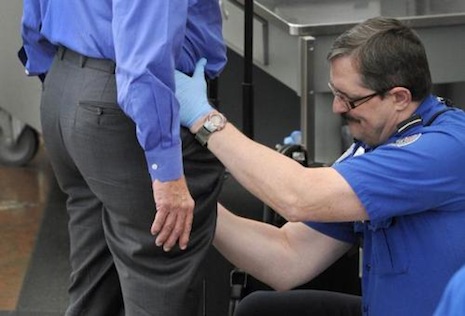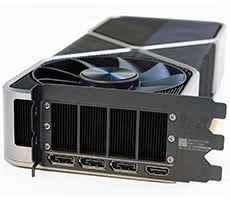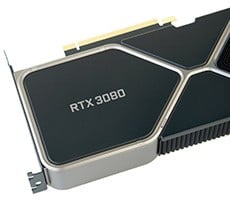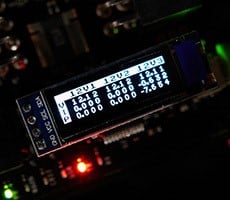HD Overdrive: Corsair's Accelerator SSD Cache
The (Considerable) Fine Print.
There are two types of fine print to discuss here. The first relates to license restrictions on the software, the second is the limitations on hardware.
License Restrictions:
There are some restrictions to the Dataplex software that are currently only listed OCZ's website -- Corsair hasn't added them. It states:
Combined with the double-entry software code, this tips over the edge from annoying DRM to bad business decision. Nvelo's Dataplex software is legitimately great; it's the reason we now have a new use for SSDs that gives customers access to many of their benefits without the downsides or headaches. What the company is doing, however, isn't security—it's security theater.

Looks an awful lot like this
The term, coined by Bruce Schneier, describes security countermeasures designed to make people feel secure without doing anything to improve security. You've mandated the use of a product activation code -- normally a mechanism used to secure software -- and applied it to hardware. There are two massive flaws in this. First, it confuses the heck out of your customers, who are unused to having to provide a serial number in order to use hardware they've legally purchased. Forcing users to enter it twice is pointless--if I've got a code, I've got a code. Double-checking the same validation approach doesn't actually add security. Second, there's literally no logical reason to attach an activation code to a software product that needs hardware to function.

Without an appropriate SSD, your software is useless. The driver files Corsair provides already check to ensure a Corsair Accelerator SSD is installed. Since the Accelerator Series is reasonably priced compared to other 60GB SSDs, and given that few people have piles of old SSDs around that they aren't using, the group of users who might pirate and benefit from your software is extremely low.
Hardware Restrictions:

The difference between Nvelo's cache software and other hybrid solutions
For those concerned about how the drive holds up under heavy load, let me say this. Up until now, my Steam installs resided on a separate hard drive. The restrictions on the Nvelo software forced me to migrate that data -- and since my Steam directory is huge and my primary HDD was nearly full, that process required the deletion and relocation of ~600GB of data.
I ran these operations concurrently, including simultaneous copies from C:\ to G:\ and vice versa. At one point, I had 10 file copies going in both directions with a movie playing off E:\. The copies completed flawlessly. The performance boost of having the SSD installed was reserved to files being copied from C:\ (which makes sense), and it eventually vanished as I tasked the mechanicals with more work than they could physically sustain at high speeds.
After all of this, I did have to reboot my system and relaunch a few programs before they sped up again, but the difference was minor.
License Restrictions:
There are some restrictions to the Dataplex software that are currently only listed OCZ's website -- Corsair hasn't added them. It states:
Disclaimer: Your Dataplex licensing key is only valid on one machine. Dataplex uses various components to identify a PC (memory, OS, CPU Id, BIOS, Ethernet card); if two or more components change, it is considered a different machine. If you wish to change only one component, Dataplex will automatically revalidate the license as long as there is an internet connection when the PC is rebooted. You must uninstall Dataplex to release the license prior to changing two or more components in your system. Licenses cannot be released after the system is no longer valid.The reason we're quoting an OCZ disclaimer in a Corsair review is that, according to Nvelo, the same restrictions apply to Corsair customers. What this means is that if you change out too many components, your system may want to revalidate the driver. The method of re-validation isn't clear -- presumably it means re-entering the same key code and having an active Internet connection.
Combined with the double-entry software code, this tips over the edge from annoying DRM to bad business decision. Nvelo's Dataplex software is legitimately great; it's the reason we now have a new use for SSDs that gives customers access to many of their benefits without the downsides or headaches. What the company is doing, however, isn't security—it's security theater.

Looks an awful lot like this
The term, coined by Bruce Schneier, describes security countermeasures designed to make people feel secure without doing anything to improve security. You've mandated the use of a product activation code -- normally a mechanism used to secure software -- and applied it to hardware. There are two massive flaws in this. First, it confuses the heck out of your customers, who are unused to having to provide a serial number in order to use hardware they've legally purchased. Forcing users to enter it twice is pointless--if I've got a code, I've got a code. Double-checking the same validation approach doesn't actually add security. Second, there's literally no logical reason to attach an activation code to a software product that needs hardware to function.

Without an appropriate SSD, your software is useless. The driver files Corsair provides already check to ensure a Corsair Accelerator SSD is installed. Since the Accelerator Series is reasonably priced compared to other 60GB SSDs, and given that few people have piles of old SSDs around that they aren't using, the group of users who might pirate and benefit from your software is extremely low.
Hardware Restrictions:
- The target drive must be the primary boot drive. Only that drive can be cached.
- Only MBR (Master Boot Record) partitions are supported. GPT partitions are not supported.
- Due to the above, the Dataplex software can only be installed on a 2TB or smaller HDD.
- The Windows system partition (the 100MB partition Vista and Windows 7 carve out at installation time) must be on the same HDD as the C:\Windows folder.
- Multiple OS's are not supported.
- Only one cache drive per system.
- The cache drives cannot be RAIDed. A RAID array of mechanical HDDs can be interfaced with a Corsair Accelerator drive.
- Once installed, the Dataplex software must be uninstalled properly before the drive is removed from the system. Failure to follow this procedure can result in a loss of data. An HDD synchronized with an Accelerator cache drive may not boot properly if the cache drive is suddenly removed.
It [the Dataplex software] is a Windows block-level filter driver, inserted as a lower filter to the driver stack for accelerated volumes. Dataplex also operates at the file system level to provide file awareness to further optimize system cache performance. The software is fully transparent to existing software layers. As it takes a sophisticated adaptive cache approach and learns over time what data is “hot”, the majority of the users will not need any specific SW controls.After using the drive for a week, I agree with Lin that the overwhelming majority of users will never need to touch a button or twist a dial to ensure high performance from the cache drive. That doesn't mean some users wouldn't benefit from having a greater degree of flexibility. It's also unclear what happens with regard to Windows 8; Microsoft's new file system eschews the "Different drives = Different drive letters" approach in favor of presenting storage as a single pool.

The difference between Nvelo's cache software and other hybrid solutions
For those concerned about how the drive holds up under heavy load, let me say this. Up until now, my Steam installs resided on a separate hard drive. The restrictions on the Nvelo software forced me to migrate that data -- and since my Steam directory is huge and my primary HDD was nearly full, that process required the deletion and relocation of ~600GB of data.
I ran these operations concurrently, including simultaneous copies from C:\ to G:\ and vice versa. At one point, I had 10 file copies going in both directions with a movie playing off E:\. The copies completed flawlessly. The performance boost of having the SSD installed was reserved to files being copied from C:\ (which makes sense), and it eventually vanished as I tasked the mechanicals with more work than they could physically sustain at high speeds.
After all of this, I did have to reboot my system and relaunch a few programs before they sped up again, but the difference was minor.






